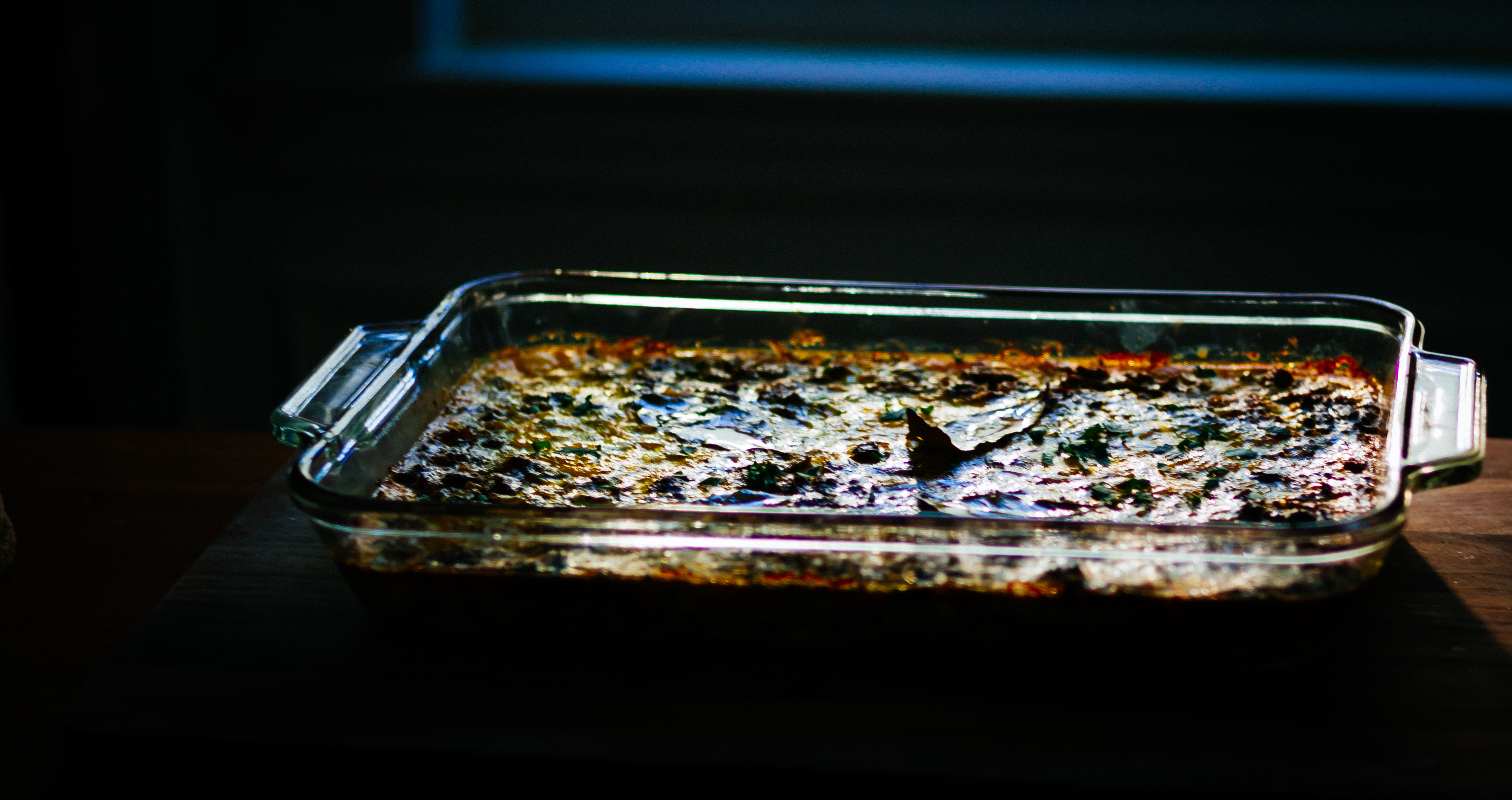To be a kosher Nigerian madam, you have to be a Baudelaire chair with gold-plated buttons and hand-planed legs strutting in Louboutins.
In plain English, to be a Nigerian Madam worth automatic recognition, the superlative kind—to be that person who uniformed supermarket guards catapult doors open for when you are ten feet away, who traffic wardens salute for your magnificence military-style from the sweltering side of wound-up tinted car windows, who immigration officers at Murtala Mohammed International Airport waive checks for you because you smell like leather and disdain in a way that no terrorist, criminal, petty nor accomplished, ever would—to be that genre of madam that boasts the mantle without one word, you have to slay with every chapter, every verse, every punctuation mark. Hair must be human, heavy, in motion even when there is no endorsing wind, bought with dollars—thousands of dollars. Manicure, pedicure, clothes, shoes, handbag, and fragrance of glory must be accounted for and on point.
Alex Muovi, the new cook my husband had hired after we married, knew the drill even though he was Beninoise and not Nigerian. He walked into our fourth-floor apartment in Victoria Garden City, Lagos, expecting one of those honest-to-God madams in a commensurate setting…a milk-chocolate-in-gold-wrapper kind of madam, not the kind that bounced around the room in jeans. The kind worthy of his culinary skills, his years invested in catering for Nigerian state governors and Pentecostal overseers and their madams. He really wasn’t exaggerating his C.V. Anyone with eyes in front of their head could see that I, on the other hand, had flunked Nigerian madam 101; that I could never ever pass the module no matter the number of resits granted. Alex and I were an unwieldy match from the get go.
He wore a white safari suit at our first meeting, with deep coat tails, made of good quality poplin. It was starched and ironed till every line in the lightweight jacket and trousers could cut your finger. The suit was transparent enough to see his white vest underneath. His feet were clad in white trainers. Not expensive ones, but spotless like he hadn’t come in a danfo, nor walked, but was teleported from his home straight to my front door. It would appear he was ready to man the kitchen with immediate alacrity. He had eyes that were weighing down his lids and blobbing out of their sockets, thick lips, protruding teeth, a wide grin that caused his eyes to lean out even more dangerously, and a conspiratorial, hushed voice. He didn’t hide the fact that he was sizing me up alongside the sparsely furnished flat.
There was one sofa covered with unbleached, wilfully unironed calico. Two stools that I had bought from a prison’s initiative in Enugu; you could see half-buried heads of nails in the Ukwa-tree wood, but that was in my opinion at least 35 percent of the charm. A well-intentioned watercolour of a house and field that had been a wedding present hung on the widest wall of the living room. An old wedding trunk that doubled as a coffee table, a woven rope-and-bamboo recliner, and the pride and joy of the house: a round glass-top dining table with four leather chairs that had been bought second-hand from a friend completed the living room.
The kitchen was even less accomplished: Some suspended shelves, a four-burner cooker that couldn’t fit two large pots at the same time, a wooden table, one stainless-steel sink, breathtaking views of Lagos Island, the Marina with grand evening settings of lollipop-orange suns visible through the kitchen window.

It was the perfect first home—easy to clean, the number of stairs a deterrent to elderly trouble-making relatives who were out of breath and disoriented by the time they got to our front door. We had survived not unscathed the first set of obligatory in-law visits, the ones that included humiliating inspections of my toilet bowls by an elderly matriarch who declared them suitably clean…who measured the length of my trousers and declared them unsuitably short, for a married woman. More selling points for the 4th-floor flat were that mosquitoes didn’t bother to come our way when there were sufficient bodies to feast on three floors below. One wished the same feeding pattern applied to guests. That on their way up they were bombarded by all the gregariousness and sociability they craved, and just before the fourth floor they waned and returned home. When there was no electricity, and that was often, we could open the windows wide and sleep soundly without fear of burglars. It was a haven that made up for not being able to afford a honeymoon immediately after the wedding. Made up for not being able to afford many things—especially not the cook sizing me and my precious living quarters up. There was serious trouble brewing in paradeisos, and the arrival of Alex Muovi was full-frontal confirmation of it.
Nigerian madams rule despotically and ostentatiously because the power show ensures you don’t become a second-class citizen in your own home. If you don’t quickly step up to the bluster of Nigerian madam-hood, your mother-in-law moves swiftly in, wears the shoes on your behalf. Your sisters-in-law set wars of attrition in motion. A hired cook boots you out of your own kitchen, or a maid installed by your mother-in-law sends nightly reports on your underwear drawer back to her employer. You find yourself under carefully organised siege if you do not confidently take the reins of power. Although I was inhaling and exhaling deeply, and doing many atilogwu-somersaults in gratitude for the anticipated hours of silence and aloneness of married life that would be filled with time to think, work, cook small meals, stare out of windows, read and write, trouble was indeed at my door, knocking hard.
Not only was Alex unaffordable on a new couple’s housekeeping budget. He was completely incongruous to our small, shabby-chic flat, incongruous to our newly minted lives being awkwardly woven together. There was an undercurrent to that first impression. The unique situation was that one half of the marriage was extroverted, the other stubbornly unrepentantly introverted. The situation was unique not because extroverts never marry introverts in Nigeria, but because these distinctions don’t in fact exist or if they do, they don’t compute. Not in reality. Introvert? Extrovert? What were those but imported ideas that did not fit into the cultural textile of Nigerian marriage. What were they when a Nigerian woman married her relatives as well as her husband, and needed to provide a house that accommodated everyone—every quirk, every decibel, every favored density of served gari.
Introversion as the opposite social personality to extroversion could not work in Nigeria and in our house. Factions were already hardening over volume of television and radio, over whether one person could read in the car while the other drove, over whether conversation had to be cranked out constantly for the sake of relationship building. Whether we had an open-house policy for guests in genuine Nigerian style, or we needed privacy. My husband was the extrovert from a home that acted like a public thoroughfare—the ideal Nigerian home with open doors, open kitchen, open everything, where everyone was welcomed and fed, and housed if need be, and no one could call a room solely theirs. A 2’6” mattress appeared on the floor if a cousin, long-lost or intimate, needed 2.5 square meters for the night, needed 6 months to a year to work towards a university admission. Five of such cousins of whatever description could easily fit in one room. Conversation, television, singing, humming, cooking, laughing was the pulse of the household he was raised in, otherwise there was something wrong. God forbid someone had died or everyone had gone to church or headed to a wedding in the village. I once sat at a meal in my in-laws’ home, tucking with concentration into gari and soup with fresh catfish, when an aunt walked in and we said our greetings. She went straight into the kitchen washed her hands, came out, and dipped her hand in my soup. I vacillated with shock for a few minutes watching her eat, slowing my pace to accommodate her enthusiasm, her shoulder moving me out of the way; my appetite was gone. I lingered over the bowl in order not to hurt her feelings, then excused myself and left her to finish the meal. A house with people living in it was not meant to be quiet enough to hear its pulse. It just wasn’t.
I craved silence. Craved it beyond the quantities needed for plain introversion. I lived for the spaces where people had turned their attention away to other things. I hoped they, everyone and their dog, would go out of the house, to pursue their hyperactivity, to fill up their need for noise and companionship and small talk, and only return when they were depleted, sated, too exhausted to talk or expect speech bubbles from me. At the end of the day I weighed every word I had spoken and penalized the excesses. I hoped nighttime heralded the winding down of my extroverted housemates’ loudly ticking clocks, and that they would generously grant me space to unmask laborious extraversion. I hoped they would appreciate that I was working hard for them, and there was nothing in it for me, faking orgasms. My mother was a hummer and a singer, but both activities did my head in and were especially aggravating in the mornings, when humming and singing seemed to come so naturally, so spiritually on extroverts.
Without reading the small print I had presumed my introverted self would be queen in my marriage. I thoroughly overrated the cuteness of my quirkiness. Quite confidently, my husband presumed I would be turning to an extrovert, a caterpillar to butterfly, as soon as we were married. In Nigeria that was the unwritten expectation, that women bent where they were pressed. Where a tree falls there it lies, great or small the tree, no exemptions.
I didn’t want guests milling in and out. No. That was the definition of hell. Hell where Nigerians deserted their own homes and came to yours to put their feet up with entitlement branded on their foreheads. Your meals were never elaborate enough; chicken never cooked tender enough, floors never swept clean enough. Their visitations were an exercise of their cultural right to African hospitality. Open house. Open guts. Open pots and pans. You were expected to smile and be congenial every minute of every day, your facial expressions watched with vigilance to make sure of sweetness and placidity. Your expressed opinion had to be pressed flat or be in danger of being interpreted as cockiness—every dissent interpreted as inhospitality, every tic as passive-aggressiveness, every crease in the sheets a hint. Quiet moments claimed for yourself meant you were hinting desperate desire for their departure. Reading a book was snobbery, a closed door in their faces. A locked bedroom door was desertion. Nothing was out of bounds—no mug, no pair of flip flops, no special face towel, no mine or mine-alone. Nothing special or hallowed to the owner of the house, no soap left untouched purely for its sitting pretty on the side of the bathroom sink. You had to hide in the recesses of the bathroom pretending to be taking a bath, because if you weren’t taking a bath or sitting on the toilet then you had to be available, floating around, happy and willing and chatty, and offering meals. You sat on the cool bathroom floor and inhaled. And exhaled long.
Too long a bath would draw criticisms, and you reluctantly emerged longing for the pretend bath of the next day and the day after. Longing for the end of the day like a hired hand, yes one turned proverbial as in bible proverbial. You prayed. Too many baths and you were a diva. Too many prayers, said loudly in the morning, meant you were devout and your meals and heart were safe. You ideally had to be heard singing in the kitchen.
African hospitality was that virtue we boasted about that made us better than foreigners—more flesh and blood than people overseas who put their parents in nursing homes when they were too old to be loved. Better than those people who timed their guests’ stay, and made their relatives board in bed-and-breakfasts adjacent to the house when there was a family wedding.
…There was the issue of the dining table that had been bought second-hand, and had got me in trouble for saying truthfully “we bought it second hand.” I got away with saying it a few times until my husband said with deep exasperation one night after some visitors had left, “Well must you tell everybody that it is second hand.” I was stunned into confused silence because second-hand meant vintage in my head. Vintage and not defective. I had no idea, absolutely no idea that buying second hand was embarrassing in my husband’s head and amongst my husband’s people, and only a last resort when you couldn’t buy new. It might have occurred to me in my malfunctioning Nigerian-ness that second hand was culturally second rate, but my brain was challenging the premise on all kinds of evidence—on the need not to justify love by newness or functionality. A good wife was not an appropriate wife, a new wife, a culturally-precise wife, rather a loved one. When I mentioned it was second hand it was in agreement with their recognition of that which was beautiful and irresistible whether it was new or not. It was me saying “Yes it is absolutely gorgeous and we didn’t have to pay full price for it.” Aren’t we blessed? Didn’t we make a fantastic bargain! If I was asked where we got it was I to make up a story about a store somewhere on Lagos Island? Was it part of African hospitality to justify love of my own possessions? What about Nigerian’s love of the bend-down boutique—imported second hand clothing? Why was it such a successful market? It might have been true that no matter how beautiful the purchase was, the newness was the paramount virtue “eleje-tutu,” but surely that rule could be discarded in the overriding presence of beauty, or even the attributed, insisted-upon high value of its owner. People walked in and the dining table was the very first thing they commended: “Wow, what a beautiful dining table,” they said. And they said it as if it had to be said. As if it was an impulse that overtook them and could not be kept down or in.
In my husband’s opinion, my postscripts were unnecessary, often a resolute embarrassment. There was a public persona and a private one. Even if one could indeed be an introvert in Nigeria, it had to be in private. Never mind that the idea of introversion only kicks in gear in public. Privacy was possible, but it needn’t be shoved in people’s faces that one needed to go and be alone. The idea of privacy felt like rejection to culturally correct Nigerians. They were offended when you said you needed your space, most especially if you were a woman. It was not something one was proud to brandish. You had to be diplomatic about your retreats. The disadvantages of privacy were that it made one unsuitable for public acceptability. When you were asked to wear aso-ebi you did not shake your head and say you wanted to wear something different. It bred strange ideas and counter-cultural thoughts; eventually, isolation. Of course my dining table was doomed. Worst of all I was Nigerian, so I had no excuse. If I was not a Nigerian woman, married to a Nigerian, I would still need to learn my husband’s culture and pour myself into the frame.
No one wanted to hear my stories about that skirt I left behind in the Oxfam shop in London with great regret, and what a cute plaid number it was. Since I knew that desires for vintage were unacceptable, I ought not to air them in public. Bend-down boutiques were a success because when you wore the clothes no one knew the difference. No Nigerian would truly retain the value they had first given our dining table when they heard it was second hand…castoffs!
My cooking one evening attracted derisive giggling like there was a strong aroma in the room suggesting that I had made up both the dish and its name. To my guests, my bobotie was an unfathomable construction of ground beef, egg, and spices baked in an oven-proof dish. Of course I had to have made it up. Whoever heard of a dish called bobotie! In vain did I reiterate that it was a South African dish that I thought would be a nice change from the same Nigerian meals night in, night out. I made it out of a book, I said, attempting to reassure the eaters. It came with a salad and 100 percent failed to please, only further nailing in proof of my eccentricities.

Last but not least in my list of unforgivable foibles was an offended sister-in-law who couldn’t be persuaded to give the newly-weds three-quarters of a year to settle in. She had come to rest and mark territory. I thought it was a lot like peeing around the refrigerator. She was certainly not going to cook for herself when a new sister-in-law ought to still be in the throes of proving her wifely mettle to extended family members. She swung open the fridge door with entitlement and slipped her feet in my slippers with entitlement. Her statements were littered with “my brother’s this…my brother’s that.” I bit my tongue till it bled then told her in uncompromising terms to get off her narrow backside and get herself a meal when she was hungry.
Alex Muovi was therefore analgesic for the mounting intractable(s). For the conclusion: The woman looked Nigerian, came from a Nigerian family, was brought up Nigerian, but was not a very good Nigerian wife. Introvert ko, introvert ni.
I gave Alex a piece of paper to write down all the meals he could cook so that we could agree on a timetable and see whether he needed to be in my flat and in my space and in my face all day long, or could just turn up to cook one meal—dinner—that would appease the flock of in-laws, and business contacts, and friends who might/would drop by in the evening: The already galled visitors and friends of the husband who had come and been given chin-chin and coca-cola and a tub or two of petit-filous, and stick-meat and meat pies and other insignificant refreshments when rice and stew with chicken or gari and soup were the correct protocol. Breakfast was easy enough. Lunch could not be expected except perhaps on a Sunday. Dinner was a necessity. Dinner was the battle ground, the courtroom where my case had been filed for months before—dinner with conversation, a good attitude, and a full sink of dishes to be cleared up after. Alex’s role was to provide much needed respite in my home for all the litigants of African hospitality—those who were already offended, and those who might be offended in the future. Last but not least, respite from strange-tasting oven dishes called bobotie. He would cook appropriate dishes that Nigerians liked, serve them, wash up. Clear up. Smile, his spine held up with laundry starch and a decent salary. Even if I was offended or dismayed by his presence in my home, I understood that he was an attempt to protect me against a system that even my husband had no power to oppose. He was more than anything a respite for me and my gutter-bound reputation. We couldn’t afford him but we couldn’t afford not to hire him. He was by far more legitimate than the cultural extravagance of a honeymoon. Who said honeymoons were truly Nigerian anyway.
Alex’s hand writing was a beautiful cursive, and the page quickly filled with flowing lines and French letters with Chinese hats, and nonsensical words that walked and stood on their heads and danced. He had no idea I had failed an Alliance Francaise class, and could therefore read with a little effort what he wrote and what he was pretending he was writing. The faux French had obviously helped in getting him his other jobs.
“What’s Russian Salad?” I asked.
“Eh Madam, iz different vigitabuls mix wit-uh- cream.”
“What kind of cream?”
“Salad cream, Madam. We can buy the bottle an’ keep.”
“Don’t you know how to make salad dressing?” I asked.
“Of course Madam, I know. Just to safe time.”
“But why is it Russian salad? Why do you call it that? If it is vegetables and salad cream, why isn’t it French salad…francophone salad?”
“Because Madam, where I use to work before, dey like it dere. The Oga like it very much. I will make it for you madam. You will like it.”
I sighed and move down the list.
“This rice dish…what is it made from?”
“Madam, iz riz cooked wit-uh sweet-uh-corn, wit-uh all-spice, mince-meat uh…chicken, cinnamon, pepper, curry…very nice madam.”
“So you make Spaghetti Bolognese well?”
“Yes madam.”
“Do you want to cook that for your test? Maybe with a salad?”
“Yes madam.”
“So you have to go to the market?”
“Yes madam.” He smiled and visibly relaxed because it would seem he thought taking the test meant he was more than likely hired, and because like most cooks in Nigeria, regular market-visits must be claimed as a necessity by the cook as early as possible in the madam/cook relationship. Madam must be discouraged from wanting to do the shopping because time and money delegated encourages the cook’s artistry, but also one can visit a friend during work hours, or keep what is saved in negotiations with the butcher over shin-of-beef and madam doesn’t need no know about either.
“Do you want to write another list? There is a market just down the road from here.”
“Yes madam, in Ajah. I know it madam.”
It was my turn to read him—to watch his enthusiasm invested in a list for one recipe, one dish. The concentration used in creating a fantasy in francophone-French and patchwork-English for this naive newly wedded madam, surely an easier play than the seasoned madam overseeing the governor’s residence, or the very important madam in a household of a redeemed-Christian-church parish-pastor. He sat at my beloved dining table, writing on a piece of torn-out paper placed on the glass. He paused to chew the back of my pen and I made a mental note to let him take the pen home after his thorough investigation of his mouth and teeth with it.
minced-beef
fresh tomates
l’oignon
vegetable huile
spaghetti
oregano
ail
Derica
I went over the list when he was done, then asked him why he needed both fresh tomatoes and Derica? Derica was our most esteemed imported tomato puree in a tin. It kind of smells like tomatoes. It does the work we want tomatoes to do. It is maroon frump, dense and deadly-tart and oily. It congeals and darkens to the colour of old blood when the tin has been left open for a few minutes. I don’t understand the necessity of Derica was my more accurate irritation at the time. I get the rationale of it in jollof-rice or a very quick stew if one is desperate. It makes the jollof-rice’s expression a gratifying deep red without going to the trouble of cooking down tomatoes for hours on end. Dilute with water, add sliced onions and ground pepper, and you can make a pretend-stew with it—but why when you can buy fresh tomatoes and cook them with the onions and honey and gourmet salt in the house…why fall into the arms of Derica?
Homemade Tomato Puree (hot version)

1 lb fresh, almost overripe tomatoes
1 large leek
1 medium onion
2 serenade chiles
2 jalapeño chiles
2 birds eye chiles
Himalayan crystal salt
1 large tablespoon of coconut sugar
1 teaspoon of honey
Virgin olive oil
Roast everything slowly in a deep oven dish until lightly charred and pulpy, then blend. This is sometimes a two-day affair where the puree keeps going in and coming out and making space for other dishes, and spending the night just sitting in the oven. (I must admit this ends up being eaten with sourdough bread and there is never enough left over to cook spaghetti anything.)
…Alex humoured me at first, still smiling he said, “Madam you need Derica when you want to cook-eh-Spaghetti Bolognese.”
“Why?” I pressed.
“Because madam you cannot cook Spaghetti Bolognese without Derica.”
He was of course telling me like Russian salad; he owed me no more elaborate explanation. He was the cook. I was not.
I couldn’t let it go.
I wanted to see where we would land. The placements of the madams in his sentences were becoming strained. Better to get the reactions to my small-madamhood out of the way now, to break the false politeness. Why did such an elevated cook want the job so desperately? He had already concluded he was too good for the job. Surely we were a filler until something solid, high-powered, more appropriate came along.

“I’ve cooked Spaghetti Bolognese many times without Derica,” I said to Alex, knowing instinctively the sentence was a finger in his bulging eye. “You can make your own ‘Derica,’ the same way you can make your own salad cream…”
…Although we hired Alex, he left us a few months later.
After he left, I discovered he moved jobs frequently. If he worked somewhere for a few months and found himself becoming bored or unmotivated, or just because he could, he left without giving notice. He was a good cook. He was better than a good cook. He was a great cook, and he knew how to ingratiate himself with the men of the house. That was the key. Madam ideally had to be the kind that thought kitchens beneath her and had three or four house girls (cousins lost or intimate) running around, and an assistant “sous-chef” to help him when there were lots of guests. She had to be concerned with perfect nails and presentability and smelling nice and domination, giving him lots of space to do what he wanted in the kitchen. Alex came and went as he liked from people’s kitchens because he chose his employers. They didn’t choose him. He would leave without notice and come back again only to be rehired without a serious query as to his behaviour or reasons for leaving in the first place. He didn’t come to the house, where madam was queen; to be rehired, he went to the office where Oga was in charge. The husband was usually shielded from the inconveniences of the cook leaving without a replacement—either madam condescended to cook herself, or one girl in her retinue, one cousin grateful for 2.5 square meters and an old mattress, filled in temporarily, or the sous-chef was a clever understudy. The husband would re-present Alex to the household with firmness sprinkled with petulance, and Alex would resume work, giving madam a few more weeks or months, or a year of respite and gorgeous meals to feed guests. If madam refused to take him back—if she put her foot down and demanded a true explanation for his coming and going—Oga/husband gave glowing references to a friend or colleague on Alex’s behalf. He went round there for dinner too.
…Alex’s smile disappeared after my insistence on a reason why such a highfalutin cook needed to buy tomato puree and salad cream instead of making his own—his face tightened like invisible windshield wipers had efficiently swiped off the smile. He breathed out sharply and looked me up and down. I was waiting for his response, and he was making me wait for it. For deep emphasis.
“Madam…” he said sneering and giving me a look that said One of those small-madams who won’t know her place. We’ll see…
“…No be today I don dey cook Spaghetti Bolognese!”





